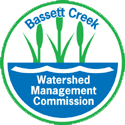News
A little birdy told us to "leaf a little litter" in the garden—but not in the streets
Mon, Nov 2, 2020A little birdy told us to "leaf a little litter" in the garden—but not in the streets
Leaving the leaves on-site avoids unintentionally hauling off hibernating insects, giving insects a chance to emerge in the spring.
If you are a reader of a certain age, you may have wondered, 'Where have all the lightning bugs gone?' Just because many of you captured them in a jar and found them dead the next morning, their population decline doesn't rest [solely] on your shoulders. Instead, chances are, the overwintering insects were carried off with the leaf litter year after year.
Until recently, residents have been encouraged to rake up all the leaves. Water management organizations especially encouraged residents to keep the leaves from blowing into the streets because what's on streets ends up in our lakes and creeks via storm drains. While we still advocate for clean streets, we now realize the importance of insects, and raking leaves out of our yards decimates many essential populations. So, if you didn't get your yard raked before the snow came, don't sweat it. Nature actually thanks you for tending to other business instead.
The new advice is to rake the leaves into existing gardens rather than composting them or sending them away with compost haulers. The leaves insulate the plants and offer vital shelter. Many insects curl up in the leaf litter or bore into hollow dead flower stems. When we compost the leaves, we are also composting next year's insect populations.
Another reason to leave the leaves is to support the food web. Insects are critical nutrition for many other insects, amphibians, birds, reptiles, and small mammals. Birds are indicator species—canaries in the coal mines, so to speak, and they are not faring well these days. The presence or absence of birds in a habitat can be a useful indicator of other environmental trends; if there are no birds, other parts of the ecosystem are likely also in decline. Though waterfowl and raptor populations have made some gains, bird populations have declined since 1970 across nearly all habitats. Research from Audubon Society and Scientific American sadly reports that bird populations have continued to plummet in the past five decades, dropping by nearly three billion across North America—an overall decline of 29 percent from 1970.
According to Ken Rosenberg a senior scientist at the Cornell Lab of Ornithology and the nonprofit American Bird Conservancy, the magnitude of the bird decline could significantly affect ecosystems and food webs—including human food supply. Birds play a vital role in pest control, pollination, and seed dispersal.
Did you know?
The heat from leaf blowers can harm the insects slumbering in the leaves and just below the ground's surface.
Dead stumps and logs house a multitude of insects. Consider creating a gnome house from a little stump or put a tabletop on a big stump.
Native plants (trees, bushes, grasses, and flowers) offer better food sources to native wildlife and don't need pesticides or fertilizers—two more wins for water.
Tips for those who like things tidy
Create a leaf pile elsewhere on your property, such as on the back of your land or beneath some spruce trees. Another idea is to put up a decorative fence or yard art to camouflage it.
Written by Dawn Pape on behalf of the Bassett Creek Watershed Management Commission (BCWMC), a local unit of government comprised of the nine cities that drain to Bassett Creek, focused on protecting water. BCWMC is a member of the West Metro Water Alliance. www.bassettcreekwmo.org.

